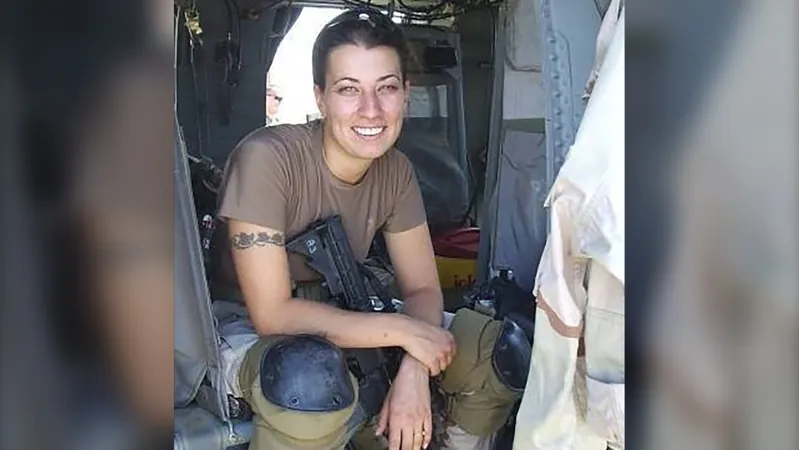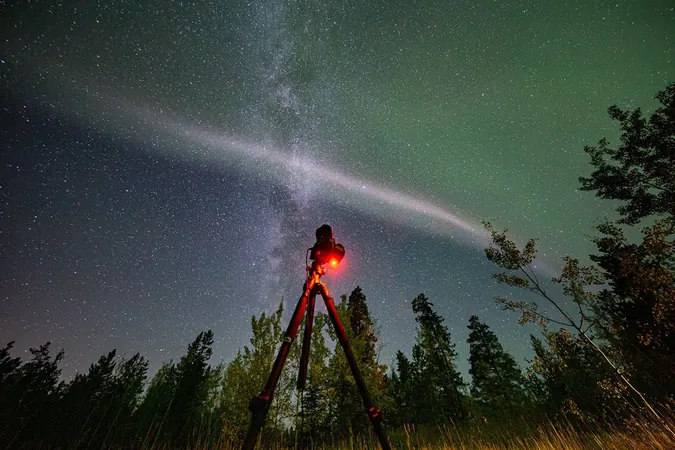
Fears Rise as Trump's Defense Secretary Pick Questions Role of Women in Combat
2024-11-14
Author: Charlotte
Fears Rise as Trump's Defense Secretary Pick Questions Role of Women in Combat
When Elisa Smithers deployed to Iraq in 2005, she faced the restrictions that kept women from ground combat roles. As a National Guard "female searcher," she worked alongside an infantry unit, primarily tasked with searching detained Iraqi women, yet upon returning home, she discovered that the support offered to her by the U.S. Department of Veterans Affairs paled in comparison to that received by her male counterparts.
Now, at 48, Smithers expresses deep concern about the potential reversal of hard-won progress for women in combat, following President-elect Donald Trump’s recent announcement of Pete Hegseth as his pick for Secretary of Defense. Hegseth, a Fox News personality and Army veteran, has publicly criticized the inclusion of women in combat roles throughout his career.
The ban on women serving in ground combat was lifted in 2013, paving the way for women to take on approximately 220,000 military roles that had previously been men-only—including positions in infantry and special operations. As of 2022, women comprised about 17.5 percent of the active-duty force. Despite his silence on reinstating the ban, Hegseth has made statements questioning whether military standards have been compromised to accommodate gender integration.
Hegseth, in a podcast interview discussing his recently published book, “The War on Warriors,” boldly claimed, “We should not have women in combat roles,” further arguing that traditional gender roles in combat are justified by historical precedent. Smithers responded by arguing that women would still fulfill combat roles unofficially, but without the recognition and benefits they deserve.
Veteran Elizabeth Beggs countered Hegseth's views by reminding us of women’s long-standing presence in combat scenarios. "Women have been part of combat throughout history," she stated, while also acknowledging that capability varies, regardless of gender.
With over two million female veterans in the U.S., their numbers are projected to keep rising. Veterans like Beggs, who held positions such as armor officer and tank commander, feel Hegseth's words diminish their accomplishments and suggest a divide rather than unity in a field requiring teamwork and shared sacrifice.
Lory Manning, a 25-year Navy veteran and advocate for women in the military, criticized Hegseth's claims of lowered standards. She referenced established integration of women in air and naval combat roles without compromising training metrics and standards.
Concerns also extend beyond combat roles. A female veteran, who preferred anonymity for fear of repercussions, expressed worry over the potential impact of Hegseth's leadership on a military culture already coping with significant challenges related to sexual assault and harassment.
Roughly 20 percent of women in the military reported experiencing sexual trauma during service, a stark contrast to about 1 percent of men. High-profile incidents of misconduct, such as the recent Senate investigation into the Coast Guard, highlight widespread issues surrounding accountability and a culture of silence.
Amidst these grave concerns, Illinois Senator Tammy Duckworth, an Iraq war veteran who lost her legs in combat, voiced outrage over the selection of someone she deems "dangerously unqualified" to lead such an integral part of the nation’s defense infrastructure.
Additionally, veteran Wendy Coop articulated her worries: Hegseth's comments risk reopening long-standing debates about women's qualifications and roles in the military, potentially undermining not just gender equality in the armed forces, but in various public service roles.
All these voices reflect a collective apprehension. The notion that women may be deemed unfit for combat roles not only discredits those who have served honorably but could also discourage future generations from seeking a place within the military.
As the confirmation process for Hegseth unfolds, the debate surrounding the role of women in the military will likely reignite, raising questions about equality, respect, and the future dynamics of service within the U.S. armed forces.









 Brasil (PT)
Brasil (PT)
 Canada (EN)
Canada (EN)
 Chile (ES)
Chile (ES)
 España (ES)
España (ES)
 France (FR)
France (FR)
 Hong Kong (EN)
Hong Kong (EN)
 Italia (IT)
Italia (IT)
 日本 (JA)
日本 (JA)
 Magyarország (HU)
Magyarország (HU)
 Norge (NO)
Norge (NO)
 Polska (PL)
Polska (PL)
 Schweiz (DE)
Schweiz (DE)
 Singapore (EN)
Singapore (EN)
 Sverige (SV)
Sverige (SV)
 Suomi (FI)
Suomi (FI)
 Türkiye (TR)
Türkiye (TR)